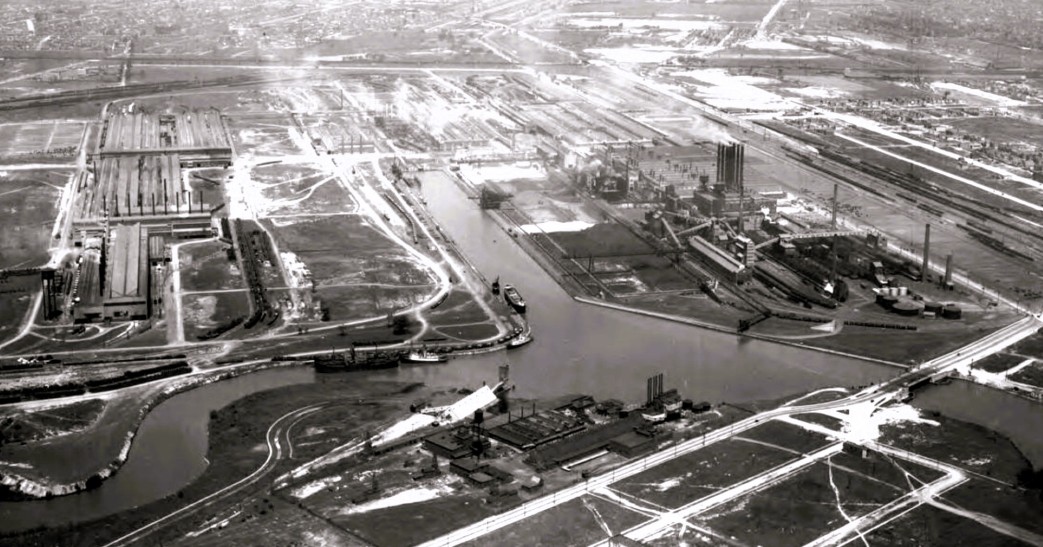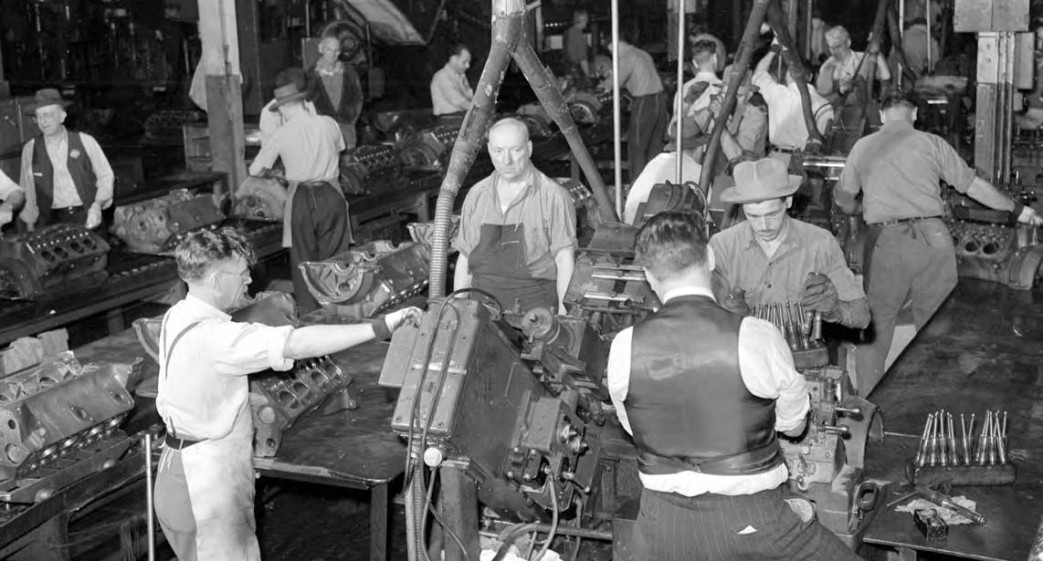Born in Scotland in 1910, Robert L. Cruden’s family emigrated to Detroit in 1924. By 1930 he was a radical young line-worker in Detroit’s auto plants, including Ford, and writing for the labor press as with this short, potent poem on Power. He would become a fellow of the Labor Research Association whose writings on auto are now essential primary sources for the history of organizing that industry. Later serving in World War Two, he took advantage of the G.I. Bill, becoming an academic at age 50. Prolific and remaining on the left, he taught Black Civil War and Reconstruction history until his retirement as Professor of History Emeritus of Bryant College. Leaving an enormous body of valued work, Cruden passed away in 2004 at the age of 94.
‘Ford Plant, River Rouge’ (Poem) by Robert Cruden from New Masses. Vol. 5 No. 10. March, 1930.
Ford Plant, River Rouge
The crimson skies of night proclaim it.
The roar of a thousand presses intone it.
The bellow of furnaces echo it.
The hum of machinery chants it.
Power.
Power of man over nature.
Power of man over man.
Power of the fires,
Power of the presses,
Power of drills over nature.
The hum of machinery chants it.
The bellowing furnaces echo it,
The roar of a thousand presses intone it
The crimson skies of night proclaim it,
Power!
Power of man over nature,
Power of man over man.
The New Masses was the continuation of Workers Monthly which began publishing in 1924 as a merger of the ‘Liberator’, the Trade Union Educational League magazine ‘Labor Herald’, and Friends of Soviet Russia’s monthly ‘Soviet Russia Pictorial’ as an explicitly Communist Party publication, but drawing in a wide range of contributors and sympathizers. In 1927 Workers Monthly ceased and The New Masses began. A major left cultural magazine of the late 1920s and early 1940s, the early editors of The New Masses included Hugo Gellert, John F. Sloan, Max Eastman, Mike Gold, and Joseph Freeman. Writers included William Carlos Williams, Theodore Dreiser, John Dos Passos, Upton Sinclair, Richard Wright, Ralph Ellison, Dorothy Parker, Dorothy Day, John Breecher, Langston Hughes, Eugene O’Neill, Rex Stout and Ernest Hemingway. Artists included Hugo Gellert, Stuart Davis, Boardman Robinson, Wanda Gag, William Gropper and Otto Soglow. Over time, the New Masses became narrower politically and the articles more commentary than comment. However, particularly in it first years, New Masses was the epitome of the era’s finest revolutionary cultural and artistic traditions.
PDF of full issue: https://www.marxists.org/history/usa/pubs/new-masses/1930/v05n10-mar-1930-New-Masses.pdf

